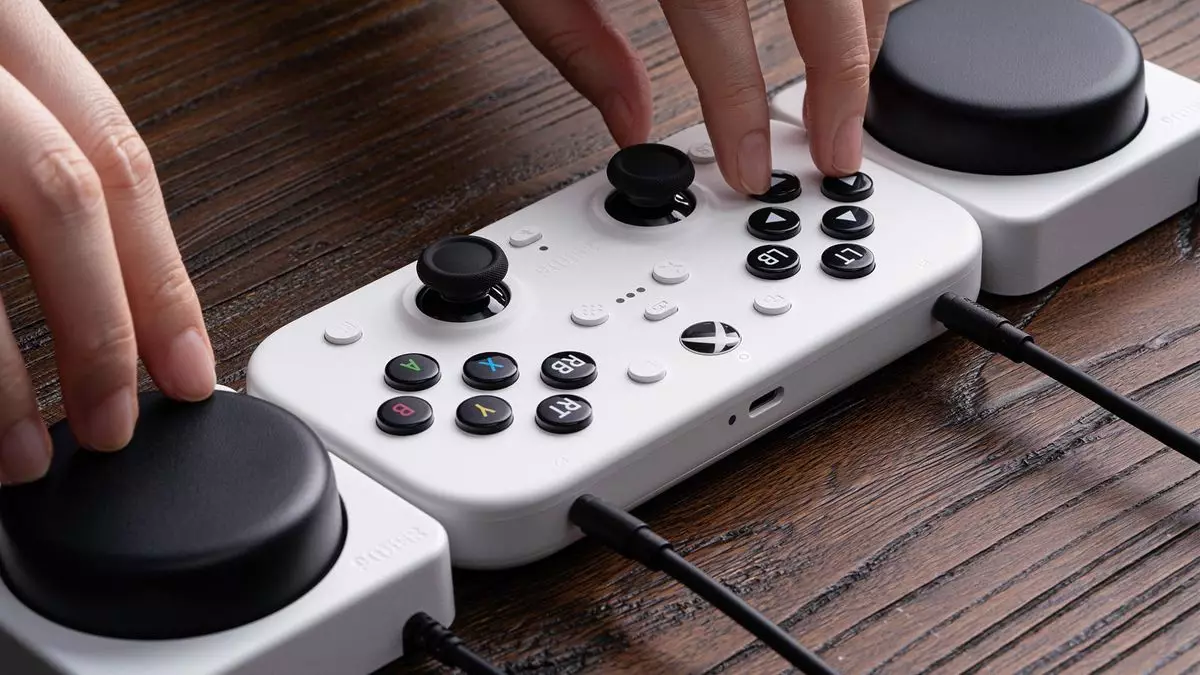In the world of gaming, accessibility is becoming an increasingly important aspect. Companies are recognizing the need for controllers that cater to a wide range of players, including those with mobility issues or other disabilities. One company that has been at the forefront of this movement is 8BitDo, known for its retro aesthetic and high-quality products.
8BitDo is known for its retro-themed mechanical keyboards and Bluetooth controllers that offer excellent battery life and connectivity. The company’s latest offerings, such as the C64-themed mechanical keyboard and the Ultimate Bluetooth controller, have been well-received by gamers. Microsoft recently announced a partnership with 8BitDo for the Lite SE Xbox controller, which features unique programmable buttons and improved joystick sensitivity.
In addition to the Lite SE Xbox controller, Microsoft also announced the Xbox Adaptive Joystick, a new controller component set to launch in 2025. This device is designed to cater to users with mobility issues, featuring a USB-C adapter and six buttons for easier gameplay. The Xbox Adaptive Joystick enables players to customize control options and pair it with the Xbox Adaptive Controller for a more tailored gaming experience.
Another innovative controller in the works is the Byowave Protus Controller, which allows users to build their own controller from modular parts. This customizable controller is designed to suit different hand shapes, sizes, and mobility ranges, making it an essential tool for some gamers. While the Byowave Protus Controller is priced at $300, its level of customization could be a game-changer for players with specific needs.
As the demand for more accessible gaming options grows, companies like 8BitDo and Microsoft are stepping up to the plate with innovative controller designs. The future of gaming is looking bright for players of all abilities, with a range of new controllers and partnerships on the horizon. Accessibility in gaming is no longer an afterthought but a key consideration in the development of new hardware.

